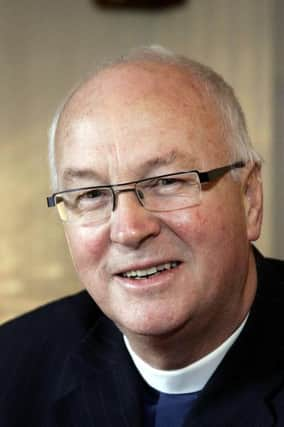THOUGHT FOR THE WEEK: Gilead: the topic of the moment


The chilling Channel 4 adaptation of Margaret Attwood’s novel, ‘The Handmaid’s Tale’ has introduced us to the strange land of Gilead, where weird religious fanatics have created terrifying world.
Some years ago , the widely-acclaimed American novelist Marilynne Robinson used ‘Gilead’ as the title of one of her works. And Bishop Michael Curry addressed Prince Harry and Meghan Markle and two billion others, and referred to an old Negro spiritual: “There is a balm in Gilead”.
Advertisement
Hide AdAdvertisement
Hide AdWhat, or where, is Gilead? The place is referred to just 23 times in the Old Testament, and never in the New. It was a mountainous and forested region, in the north of Palestine, and east of the Jordan river, close to border of present day Syria. It was the birthplace of two remarkable figures in Hebrew history; the fearless but impetuous judge Jephthah, and the prophet Elijah, who rid the land of pagan worship by his victory on nearby Mount Carmel.
Being in border territory, it was, from time to time, overrun by other powers and separated from the rest of Israel. Isaiah the prophet made no reference to it in his lengthy writings, and Jeremiah mentions it only to quote a proverb which asks, ‘Is there no balm in Gilead?’ (Jeremiah 8; 22).
Of course, there was balm in Gilead. An aromatic resin or gum was extracted from a certain variety of tree, and used for healing or cosmetic purposes. The balm was widely exported, and made the region famous.
The spiritual mentioned by Bishop Curry affirmed that ‘there is a balm in Gilead, to heal the sin-sick soul’. That is the great affirmation of the Christian faith, that God has acted in Jesus Christ to deal with the problem of human sin.
Advertisement
Hide AdAdvertisement
Hide AdSin, says the Bible, separates us from a holy God, and tends also to separate us from our fellows. Isaiah, in the chapter which most clearly-foreshadowed Christ, wrote that ‘we all, like sheep, have gone astray, each of us has turned to his own way.’(Isaiah 53; 6).That sentence shows how sin isolates us from others, making us fearful of being truly open with one another.
But if Isaiah pinpointed our human problem, he went on, in the same verse, to provide the solution, writing, ‘The Lord has laid on him the iniquity of us all.’(Isaiah 53; 6). Jesus is the ‘balm in Gilead’.
Luke tells the story how Jesus once encountered a deeply-disturbed man in territory close to Gilead. The man was naked, demented, incapable of being controlled; yet when Jesus dealt with him we read that he was ‘sitting at Jesus’ feet, dressed and in his right mind’ (Luke 8;35). Jesus can bring spiritual peace and health to all who seek him.